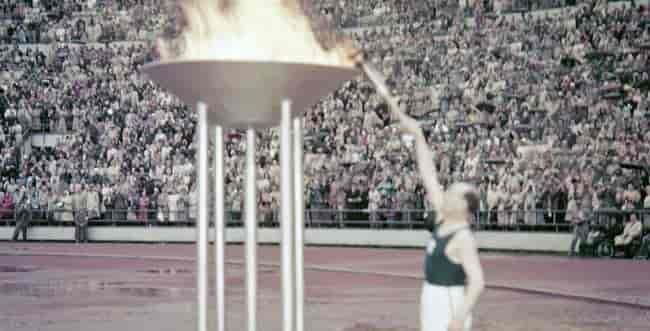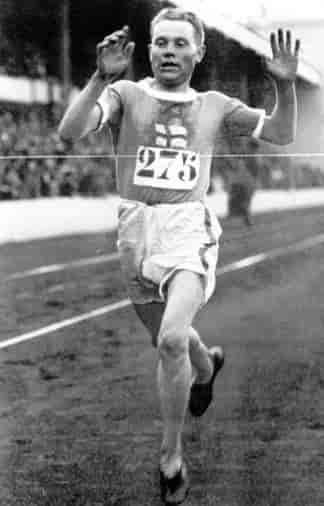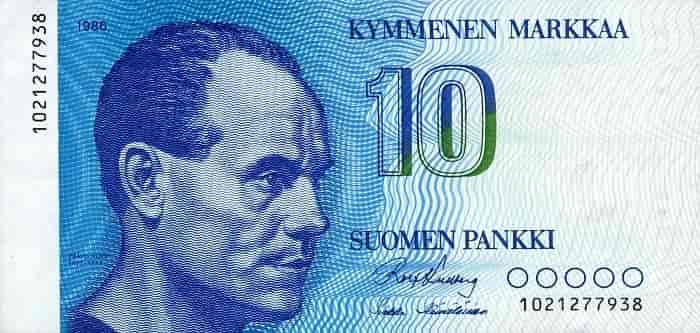The Flying Finn
The story of the "Flying Finn" who gave pride to the divided nation
Paavo Nurmi "The Flying Finn" is one of the most decorated athletes in history with 12 Olympic medals, he is the national pride of his country which was immersed in a civil war

Every sports fan knows the flying Dutchman, Robin van Persie who starred for Arsenal between 2004-2012, the non-flying Dutchman is an even bigger legend, Dennis Bergkamp, an Arsenal legend who starred in it between 1995-2006. But even a small nation with half of Israel's population has its own "flying" athlete, the athlete Paavo Nurmi, the "Flying Finn", who was the pride of the young Finnish nation at the beginning of the last century and died on October 2, 1973.
On June 13, 1897, Paavo Nurmi was born, known as "The Flying Finn", he was born in the city of Turku in southwestern Finland. He was orphaned at the age of 12 by his father, which forced him to go out to work, which made him cultivate a withdrawn character as he grew up. When he was twenty, Finland gained its independence, and entered into a civil war between the different classes, when he, like Didier Drogba, gave hope to a divided nation.
In 1914 he started running in an organized framework but, progressed slowly due to a body structure less suitable for a sprinter, which did not deter him and only made him work harder and persevere.
When he served in the army he was suspected of cheating after he finished a long haul while carrying a heavy weight, significantly before everyone else. He then turned out to be running it while everyone else was walking. Already in his first Olympics (1920), he won 4 medals, 3 of which were gold, following his achievements he was promoted to the rank of corporal.
Broke a world record in protest after refusing to run out of concern for his health
In his second Olympics, he won five gold medals, with only two hours between his first run and his second. In his second run, 24 of the 39 runners finished it unconscious. Those in charge of the expedition prevented him from running in the 10,000-meter race for fear of his health. As a protest ran alone around Paris with a result better than the world record.

In preparation for the Olympics in 1932, he trained a lot to climb long distances. He broke records in half marathons and was supposed to run a full marathon. But Sweden complained that he was a professional and was receiving money, which was, as I recall, forbidden at the time. Despite a petition from the Olympic marathon runners, the Athletics Federation decided to disqualify him and thus ended his wonderful Olympic career.
Paavo Nurmi was honored when he was inducted into the bill
In 1934 he finally retired from running, having won no less than 12 medals (9 gold and 3 silver) throughout his career, more than any other athlete in history. He is known for his psychological and tactical preparation, when together with hard work and perseverance they covered with great success, the large body structure. He did all this when he sometimes had to run two important runs a few hours apart.

After retirement, Paavo Nurmi coached the Finnish delegation to the 1936 Olympics in Nazi Germany. He eventually turned to business, where he became a successful businessman. He also tried to expand into the shipping business, but without success. In 1952 he lit the Olympic torch. In his old age he founded a research fund for heart diseases, he died on October 2, 1973 at the age of 76. He was honored by his country when he appears on the face of a 10-mark bill.
Stay Connected With Us
Follow our social channels for breaking news, exclusive content, and real-time updates.
WhatsApp Updates
Join our news group for instant updates
Follow on X (Twitter)
@jfeedenglish
Never miss a story - follow us on your preferred platform!